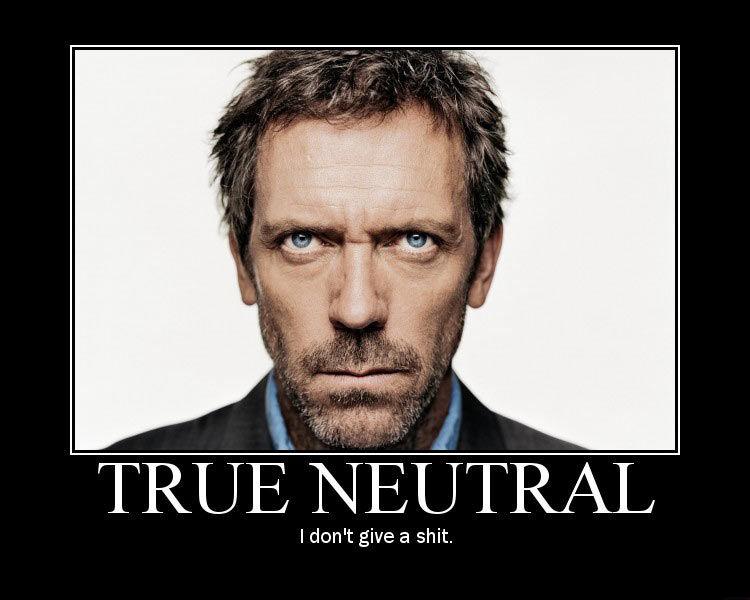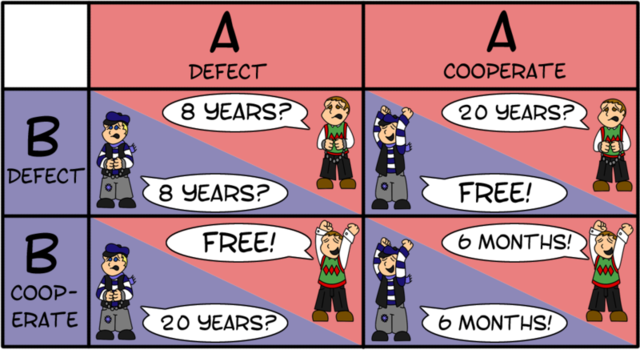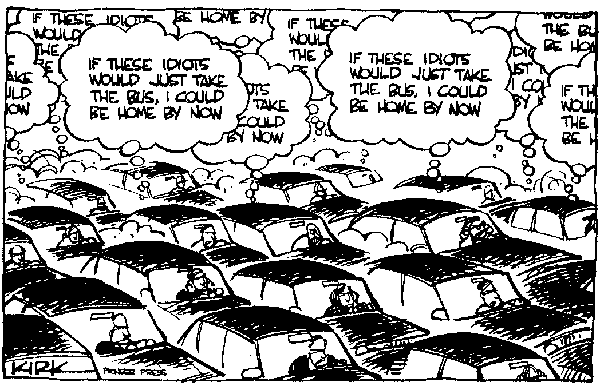Or “Oy vey, the problems that can crop up when you share one semi-but-not-completely tongue-in-cheek picture on the Book of Face.”
There is one fundamental aspect of all humans everywhere regardless of culture, gender, sex, religion, skin tone, hair color, ability, or intellect and that is that we are all lazy sods who want to do the minimum contribution to the mass of society it takes to satisfy us and then be left alone to do our own thing. Sure, some of us are perfectionists and will insist that our minimum be to a higher standard than someone else’s but that’s not a given with most humans. Honestly, unless we know someone beyond just their name, we generally don’t spend much time thinking about them. We’ll help out our friends and family (after all, my parents have helped me and my sister out a lot when we needed it) in a heartbeat because we know those people. We might even go to other folks we know who don’t directly know a friend of ours who’s hard-up at the moment and ask them to pitch in to help out.
That’s how society functions at its most basic. It’s a web, of sorts, a kind of distributed network where not every person (or node) is connected directly to every other person (or node). It scales well enough so that people can understand that they are part of a family, then a tribe, then a nation, and finally the entire human race. The problems creep in when one rank of the web is mistakenly assigned a part that would go better to another rank. It’s taken us a long time (almost embarrassingly long) to figure out which rank should have which task. For instance, for a long time, armies were held at the tribal level. That worked out okay when people were still spread out in sparse groups (the hunter-gatherer phase). Then they started forming nation-states and the ones that were the most successful at maintaining stability — internal and external — were the nations that moved control of the armies up to the national level. In places where armies were held at the familial or local level, things were unstable. Civil wars and in-fighting were much more frequent. This is part of why feudal Europe took so long to recover from the fall of the Western half of the Roman Empire. It’s also why organized crime and gangs are such a problem — they aren’t beholden to anyone or any particular set of ideals other than “we want shit others have” and so have no check on misuse of their martial powers. The military is beholden to the government and the government — be it the President or the Queen or the Pope — decides when and where to use it. If the people don’t like their decisions, there are ways to deal with it. A military unit that goes rogue and starts invading places or harassing people is a military unit that is going to be hunted down by the whole rest of said military and hanged from the nearest set of trees.
Another example is dealing with other nations. For way too long, that kind of stuff was held at the tribal level with one local chief (or lord or earl or whatever fancy name they want to call themselves) might have a peaceful relationship with a foreign power while another chief wanted to go to war with them and the king (the head of the chiefs) might just not care much one way or the other. Look at Scotland if you think I’m making shit up. The Scots were buddy-buddy with the French for a long time while the English fought with the French so frequently that I’m half-surprised the wars finally ended. Even after Scotland became the senior partner in the United Kingdom, the Scots were closer to the Continent than the English. Even today, the Scots would prefer to stay part of the European Union while the English want out. This is probably going to be the issue that finally breaks up the union and I don’t think either side is going to be happy with where they end up.

Charity is the biggest example most of us can think of for “an act that belongs to one web but got tossed up to another to the point of it no longer functions well at all.” Back when it was held locally, pretty much everyone who needed charity could get it. It also had the function of forcing society to remain somewhat more tightly knit by reminding those who were on it that they owed gratitude to those who provided it and reminding those who were well-off that there’s a price to pay for status and benevolence is that price.
Was it perfect? Nope. Is it perfect now that we screwed around and assigned a local-web function to the national-web level? Oh hell no. Thing is, many of the imperfections from the past era had to do with the fact that life, in general, sucked for everyone back then. Orphans starved or died of disease at just a slightly higher rate than non-orphans. Poor women lived just a few years less than their wealthier counterparts. Medical care, whether you were George Washington or some random Irish guy consisted of being cut to let the bad humors out. These days, though, everyone has access to clean water, indoor sanitation, vaccines (vaccination is so cheap that we do — rightly — fund it to keep companies making them even though the profit-margin is practically nil), and education. Aside from vaccination, all of these things are pushed down to the level most appropriate for them. Water regulation is a state matter in the US. So is education (for the most part). Building codes are municipal. And, imperfect as they are, they mostly work better than they would if they were delegated up or down. It would be a complete waste of time for DC to try to figure out how homes in Mississippi should be built or to try to demand that all homes in the US be built to the exact same code. It would also be incredibly stupid considering the sheer variation in local climate, average seasonal temperature and humidity, and population density. Could you imagine the outcry if idiots in Flora, MS started telling the morons in Los Angeles that they had to allow at least fifty feet between habitations to allow for proper water run-off on adjacent properties? Or if the dingbells living on the Gulf Coast tried to tell the doorknobs living in Manhattan that they needed to have ceilings that were at least 12′ high and all buildings had to be wood-framed to allow for give during thunderstorms and tornado outbreaks?

That would go over about as well as a lead balloon.
So why are we doing it for charity? Do the sods in Michigan have any clue what the needs of the poor in Jacksonville, Florida are? Do the tossers in Queens have any earthly idea what it’s like to be poor out in Cheyenne? Do they know if it’s tied in to local economic cycles or is this a structural problem leading to generational poverty? Does it have to do with lack of access to education due to budgetary shortfalls, poor teacher training, or scarcity of population? Could the issue be cultural in origin? Do they know? Do they care? Nope. Because this is so far outside of their local-web that they can’t imagine it anymore than I can imagine or sympathize much with what it’s like to grow up a gay dude in Japan. Instead, they throw money at the problem and absolve themselves of actually having to analyze and deal with it. It’s not like they know those people, after all. And money helps everything, right?

It helps about as much as mandating 12′ ceilings for all.
It also leads to other problems. After all, if the national government’s job is to provide charity, then why should we bother giving to local concerns? Eventually, you wind up with a lot of national or international charities and only churches doing anything local. There’s also no status given for paying taxes or helping in local charities. Back before we went stupid on this, one of the main ways for the wealthy to sort themselves by status was for them to be involved in local benevolent concerns. And yes, it was a good idea to have the wealthy running them because they knew how to handle money and how not to get ripped off. Anyone who doubts that should take their savings out of the bank and hand it to the first guy they see on the street and then get back to me in a year with the results. Unless you happen to be insanely lucky, chances are you’re going to be broke.
There’s also no penalty for not giving to charity or not participating in local organizations. Used to be, if you didn’t, then you really didn’t get invited anywhere and people looked down on you — especially if you were well-off. Your sons might not be allowed to court women from other good families and would have to either be eternal bachelors, go abroad (and rumor would go with them), or marry down. Your daughters would require a higher dowry and would have to prove that they hadn’t inherited your tight-fisted ways. But these days, no one cares. Be as tight-fisted as you want — there’s no downside. After all, you pay your taxes and that’s enough. Maybe if you want to show how pious you are, you advocate for higher taxes (and then do your best to minimize your tax burden by creating an LLC, giving it ownership of everything — cars, homes, etc — and then claiming a low salary from it to file on your 1040 so that you get the lower tax burden from the LLC and can even qualify for a refund on your 1040. And yes, every blasted actor out there, I’m lookin’ at you. Assholes).
After all, it’s not like it’s your problem, is it? It’s the nation’s problem and that means that the nation — namely Someone Else — should have to contribute to fix it.
Will moving charity back to the local-web make it perfect? No. Nothing will make it perfect because the minute you throw humans into the mix, you’re going to get imperfection. Will it make it better? Not immediately. It’s been almost three or four generations that we’ve been screwing this up. We’ve axed a lot of the local customs. It will take generations to rebuild the local customs that put pressure on people to contribute and to show gratitude. It will also take a long time for us to understand that, in this, Jesus had it right. The poor will always be with us. What we really need to do is figure out what the various causes of poverty are and try to see what can be done at the local-web level to fix them, scaling it up only if it’s necessary to do so. Some people are poor because they make stupid decisions. Some are poor because they were never taught how to handle money. Some are poor because they can’t work. Some are poor because they don’t really want to work at a level that would take them out of poverty. Some of these issues we can fix. Some, we can’t.
No matter how much money from however far away is thrown at it.
— G.K.
































